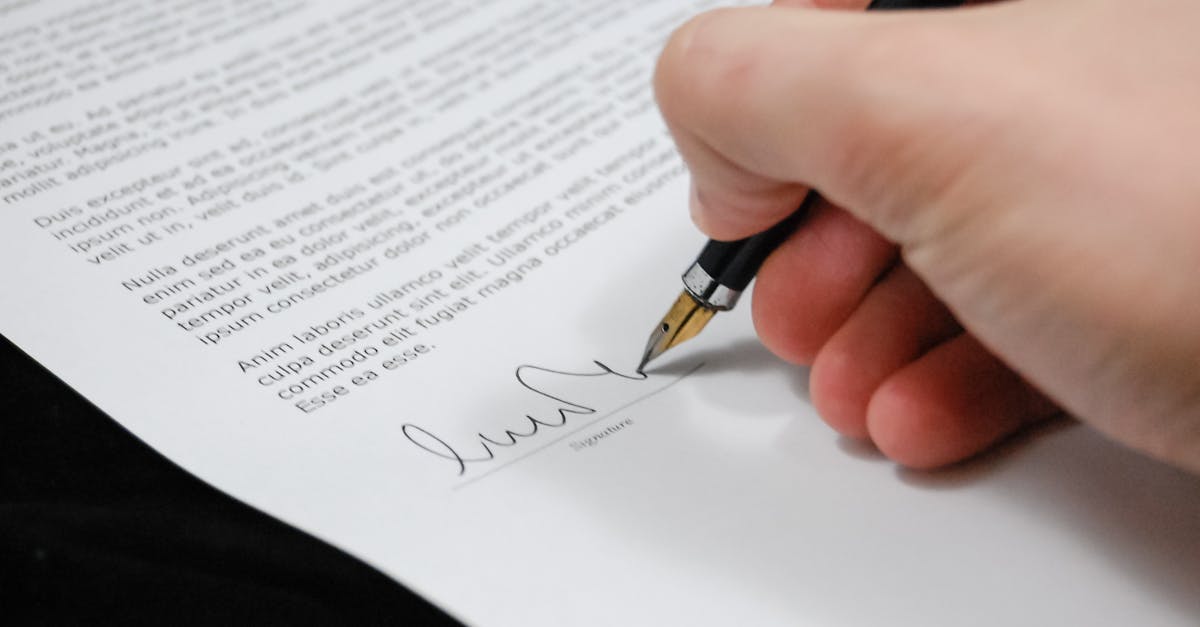
Work Environments for Private Investigators
Private investigators often work in a variety of environments that range from corporate offices to the field. These professionals may find themselves conducting surveillance in urban areas, monitoring individuals in public spaces, or digging through archives for critical information. Investigating legal matters usually requires private investigators to be adept at collecting evidence discreetly while navigating complex situations that demand a keen eye for detail and quick thinking under pressure.
Additionally, private investigators may spend a significant amount of time working independently or collaborating with a team of other investigators. This level of autonomy allows them to manage their schedules efficiently and tailor their approach to each case accordingly. Whether they are scrutinizing financial records, tracking down leads, or interviewing witnesses, private investigators must demonstrate a high level of professionalism and confidentiality as they navigate the intricacies of each investigation.
Private investigation agencies or selfemployment
Private investigators have the option of working for private investigation agencies or operating as self-employed individuals. When choosing to work for an agency, investigators may benefit from a structured work environment, access to resources, and a network of colleagues for collaboration. On the other hand, being self-employed offers freedom in managing one's schedule, selecting clients, and determining the scope of work undertaken.
Investigating legal matters as a private investigator within an agency can provide a sense of stability with a steady flow of cases and established procedures to follow. Conversely, self-employment allows investigators more autonomy in decision-making processes, including how to approach cases and which methods to employ. Both avenues have their unique advantages and challenges, catering to individuals with varying preferences in work style and professional autonomy.
Legal Boundaries for Legal Investigators
Legal investigators are tasked with the crucial responsibility of delving into legal matters with precision and accuracy. They must navigate through a maze of rules and regulations to ensure that their actions are in alignment with the law. Investigating legal matters requires a meticulous approach that involves thorough research and documentation to build a solid case.
Legal investigators are required to adhere strictly to legal and ethical guidelines in their investigative work. This includes maintaining the confidentiality of sensitive information, conducting interviews within the boundaries of the law, and ensuring that all evidence collected is obtained through legal means. Failure to comply with these regulations can result in legal repercussions, jeopardizing the integrity of the investigation.
Must adhere to legal and ethical guidelines
Legal investigators are professionals who play a crucial role in the legal system. Investigating legal matters, they are required to adhere strictly to legal and ethical guidelines in order to maintain the integrity of their work. This means conducting thorough investigations within the boundaries set by the law and upholding a high standard of ethical conduct throughout the investigative process.
In their pursuit of truth and justice, legal investigators must ensure that all steps taken during an investigation are in compliance with legal regulations. This includes obtaining evidence through legal means, respecting the privacy rights of individuals, and handling sensitive information with discretion and professionalism. By following these guidelines diligently, legal investigators uphold the principles of fairness and justice in their quest to uncover the facts of a case.
Legal Boundaries for Private Investigators
Private investigators play a vital role in assisting individuals and businesses with various investigations, but they must operate within legal boundaries. There are specific laws and regulations that govern the actions of private investigators, particularly when it comes to evidence collection and surveillance. Investigating legal matters requires private investigators to be mindful of privacy laws and regulations surrounding surveillance activities. They must also ensure that the evidence they collect is obtained through legal means to be admissible in court.
Additionally, private investigators must be aware of the legal restrictions surrounding impersonation, trespassing, and accessing personal information. It is essential for them to conduct their investigations in a lawful and ethical manner to avoid potential legal repercussions. Understanding and adhering to these legal boundaries is crucial for private investigators to maintain their professional integrity and credibility while carrying out their investigative duties.
Limited by laws surrounding surveillance and evidence collection
Legal investigators are constrained by strict laws pertaining to surveillance and evidence collection. These professionals must adhere to legal guidelines at all times, ensuring the integrity of information obtained during investigations. Investigating legal matters requires a meticulous approach to gather evidence that will withstand judicial scrutiny. Private investigators must navigate through regulations that set clear boundaries on the methods they can employ to gather information.
In carrying out their work, private investigators must be cognizant of limitations when it comes to surveillance and evidence collection. They must refrain from engaging in activities that infringe on individuals' privacy rights or are considered unlawful under statutes. Navigating through the legal landscape requires a deep understanding of the laws governing the field to ensure that evidence obtained is admissible in legal proceedings.
FAQS
What is a legal investigator?
A legal investigator is an individual who specializes in gathering evidence and information for legal purposes, such as in criminal or civil cases.
What is a private investigator?
A private investigator is a professional hired by individuals or organizations to conduct investigations on various matters, such as background checks, infidelity cases, or locating missing persons.
What are the main differences between a legal investigator and a private investigator?
The main difference lies in their work environments and legal boundaries. Legal investigators typically work within the legal system, while private investigators often work independently or for private investigation agencies.
Do legal investigators and private investigators have different legal boundaries?
Yes, legal investigators must adhere strictly to legal and ethical guidelines set forth by the legal system, while private investigators are limited by laws surrounding surveillance and evidence collection, which can vary by state.
Can a legal investigator also work as a private investigator?
It is possible for an individual with proper training and licensing to work as both a legal investigator and a private investigator, as long as they abide by the specific legal requirements of each role.
